Search
Search Results

Image
Portuguese Caravel with Lateen Sails
A model of a 15th-century Portuguese caravel with lateen sails. The caravel was an important element of Portugal's ambitions to build an empire. (National Maritime Museum, Paris)
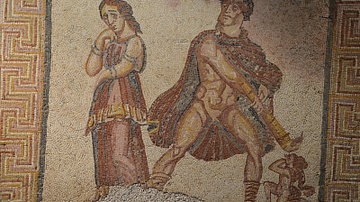
Image
Hercules Furens Mosaic
Mosaic panel depicting the madness of Heracles (Hercules furens), from the Villa Torre de Palma near Monforte, 3rd-4th century CE (National Archaeology Museum of Lisbon, Portugal). When Hercules grew up and had become a great warrior, he...
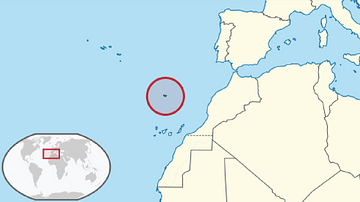
Image
Map Showing the Location of the Madeira Archipelago
A map showing the location of the Madeira archipelago in the North Atlantic. Uninhabited but colonized by the Portuguese in the 15th century, the islands are now an autonomous region of Portugal.

Image
Map of Cochin
A 1635 map of Portuguese Cochin on the southwest coast of India. Cochin (modern Kochi) was a major hub of the spice trade and was colonised by Portugal in the early years of the 16th century. (Livro das Plantas de Todas as Fortalezas, António...
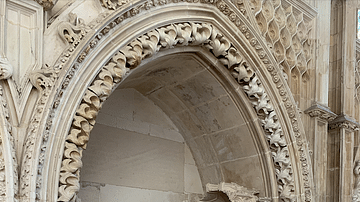
Image
Tomb of Henry the Navigator
The tomb of Prince Henry the Navigator (aka Infante Dom Henrique, 1394-1460) in Batalha monastery, central Portugal.
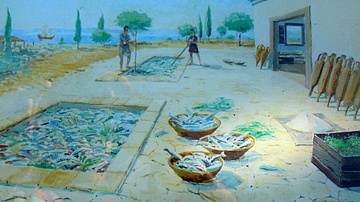
Image
A Garum Factory
A watercolour depiction of the fish salting tanks at a Garum factory at the Roman Ruins of the Villa at Cerro da Vila which was built c. 27 BCE - 14 CE. The villa is located in what is now the resort of Vilamoura in Loule, Portugal.
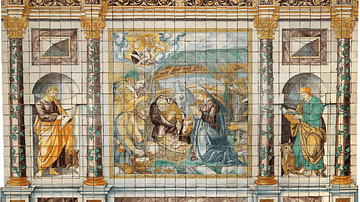
Image
Retábulo de Nossa Senhora da Vida
Retábulo de Nossa Senhora da Vida (1580 CE) or Our Lady of Life is Portugal’s oldest azulejo (glazed ceramic tile) and is an important piece of 16th century CE Portuguese tile production. It is on display at the National Tile Museum in Lisbon...
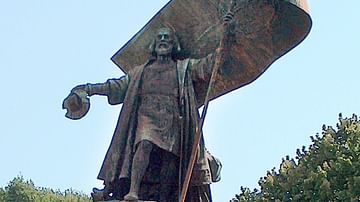
Image
Pedro Álvares Cabral
Statue of Pedro Álvares Cabral (1467/1468 to c. 1520) in Lisbon, Portugal.
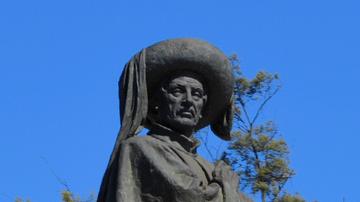
Image
Bust of Henry the Navigator
A statue bust of Prince Henry the Navigator (aka Infante Dom Henrique, 1394-1460). Faro, Portugal.
(image cropped)
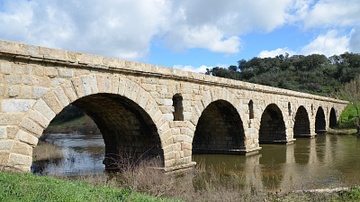
Image
Roman Bridge, Ponte da Vila Formosa
The Roman bridge Ponte da Vila Formosa, dating from the late 1st century / early 2nd century CE, is one of the best preserved bridges throughout the Iberian Peninsula. It is located on the way which connected Olisipo (Lisbon, Portugal) to...